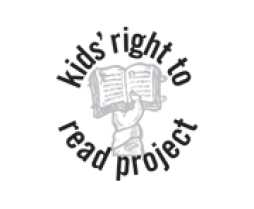Francesca Lia Block’s novel, "Baby Be Bop" was recently challenged in West Bend Public Library in Wisconsin.
Kids’ Right to Read Project also interviewed local activists Maria Hanrahan and Mary Reilly-Kliss in West Bend.
Click here to view KRRP’s letter to the Common Council.
Kids’ Right to Read Project: Your books, including specifically Baby Be Bop, Girl Goddess #9: Nine Stories, I was a Teenage Fairy, and Witch Baby, have all received widespread acclaim and are well-regarded by book-lovers everywhere. How does it feel for those same books to have appeared at the center of
censorship controversies?
Francesca Lia Block: I’m a bit surprised in one way, because the message of all of them is love, tolerance and self-expression. On the other hand, I am not surprised because the message of all of them is love, tolerance and self-expression.
KRRP: Early on in your career, did you anticipate any challenges would arise against your books in classrooms, schools, and/or libraries?
FLB: I didn’t think much about it. I just want to write stories and leave it up to publishers, teachers, parents, librarians and kids to decide if the books are right for them or not.
KRRP: How have you responded to challenges over the years? How has you approach differed over time? What have you found to be successful?
FLB: I ignore these things, mostly. I keep writing. To me that is the most powerful form of resistance.
KRRP: Currently in West Bend, Wisconsin the Christian Civil Liberties Union’s Milwaukee branch has filed a legal claim against the City calling in part for the right to publicly burn the local library’s copy of your book, Baby Be Bop, claiming it along with other Young Adult novels, “promotes the indoctrination of the gay agenda.” How do you as an author respond to such challenges?
FLB: I support gay rights. I support human rights. I find this very strange. I will continue to write my stories.
KRRP: What is important about the ‘controversial’ parts of your books? What role do those excerpts play in the narratives of your stories as a whole?
FLB: I don’t separate the controversial aspects from the rest. They are all integral parts of a story. I don’t write controversy for controversies sake. It is all part of what I believe.
KRRP: Local community members in West Bend have organized several
initiatives and events in response to the challenge at the local public library, including staging a read-in of banned books, a march, talks on topics related to intellectual freedom and censorship, as well as a petition. Would you like to comment on these efforts?
FLB: I deeply value and appreciate this kind of support. Deeply.
KRRP: What do you hope librarians, teachers and school administrators in communities facing challenges to literature take away from these controversies?
FLB: I hope that more understanding, tolerance and awareness arises out of all of this.
KRRP: What would you like youth to know about books that have been challenged or banned?
FLB: Many of these books are important literature with important messages. It is important for young readers to research these things and understand why certain books are controversial.
KRRP: What advice would you give to fellow authors facing censorship controversies?
FLB: Keep writing what you need to write.
KRRP: Have you ever felt pressure to censor yourself as a writer?
FLB: I have been very fortunate. My parents encouraged me never to censor myself and I have been lucky to have found agents, editors and publishers who allow me to tell my story.
KRRP: We noticed that Baby Be Bop is listed by several booksellers and distributors as out of print. Does this have anything to do with censorship?
FLB: No. it went out of print because it was published in the 90’s and has since been repackaged as part of DANGEROUS ANGELS and also as part of BEAUTIFUL BOYS (which includes Missing Angel Juan)


